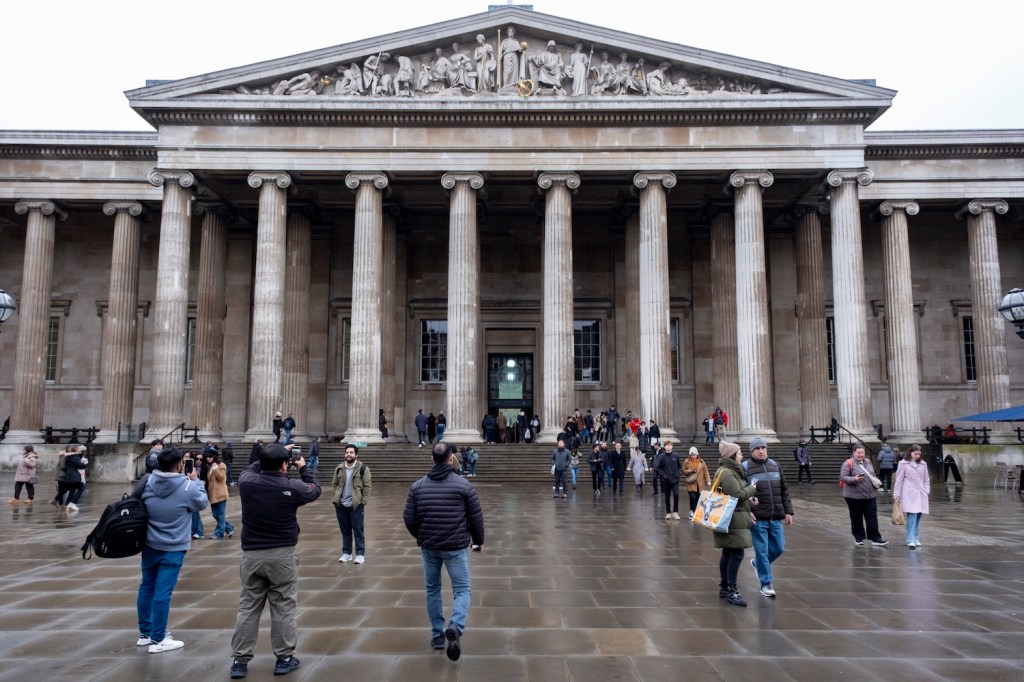On Monday, the UK parliament will debate whether sponsorship and advertising by fossil fuel companies should be made illegal.
The move comes after a petition calling to ban such deals—like the £50 million ($63.3 million) partnership between energy giant BP and the British Museum—collected more than 100,000 signatures. (MPs are obliged to debate in parliament the topic of a petition if it is signed by more 100,000 members of the public.)
Those campaigning for the change argue that the government should prohibit the promotion of coal, oil, and gas companies due to their role in exacerbating climate change. In 2003 the Labour government bowed to similar pressure when it banned tobacco advertising.
The government said in a statement that it is “committed to reducing emissions from high carbon products,” but has “no plans to restrict fossil fuel advertising.” It added that any decision to restrict advertising would fall on the independent Committees of Advertizing Practice (CAP) and Advertizing Standards Authority (ASA).
British cultural institutions are increasingly distancing themselves from fossil fuel companies, fearing reputational damage. While the British Museum is cozying up to BP, the likes of the National Portrait Gallery, Tate galleries, and Royal Opera House have ended sponsorship deals with the energy company in recent years.
“For far too long we have allowed those guilty of plundering our planet the most—the fossil fuel giants—to greenwash their filthy reputations through advertising and sponsorship,” broadcaster and environmental campaigner Chris Packham told the Art Newspaper. “Through multi-million deals with the British Museum, the Science Museum, and many other beloved cultural institutions, companies like BP and Shell effectively ‘buy’ their social license to continue to operate. We say no more. Tobacco advertising was banned in 2002 because we all know smoking kills. Fossil fuels kill too, so let’s get the ban done.”
The British Museum has been forced to justify the deal it signed with BP in 2023 to help it deliver its mega-revamp over the next decade. Nicolas Cullinan, who became the museum’s director in June last year, said about BP’s donation, “I think you have to have very good, clear reasons for turning down money that would help to keep the British Museum free to the public.”
In February, BP announced that it was slashing its renewable energy investments and instead focusing on increasing oil and gas production. The energy giant revealed the shift in strategy following pressure from some investors who complained that its profits and share price were lower than those of its rivals.
Related Articles

London’s Science Museum has also come under fire for its ongoing sponsorship deal with Adani Green Energy, which is part of the Adani Group, the world’s largest private coal producer. Last month, National Education Union (NEU) representatives protested outside the musuem to support cultural sector workers, scientists, teachers, and parents calling for people to stop visiting the museum due to its ties to Adani.
Frances Morris, the director of Tate Modern from 2016 to 2023, told TAN that she was angered by cultural institutions helping fossil fuel companies “greenwash” their reputations.
“As the UK races to meet our net zero targets, the need to combat fossil fuel extraction has never been more urgent,” she said. “While many museums, cultural institutions and artists are taking significant measures to combat the escalating climate and nature crisis, it is deeply frustrating that a few high-profile institutions demonstrate irresponsible leadership and continue to endorse greenwashing corporate partnership deals with major planetary polluters.”
Morris added that “legislation to ban such deals is crucial. It would liberate our institutions from the conflicts of interest they currently face in fundraising, allow them to refocus their roles and responsibilities, and help them rebuild the public trust they are currently in danger of losing.”
The debate over whether to ban sponsorship and advertising by fossil fuel companies in the UK will be live streamed on Parliament’s website from 4:30pm UK time Monday.

